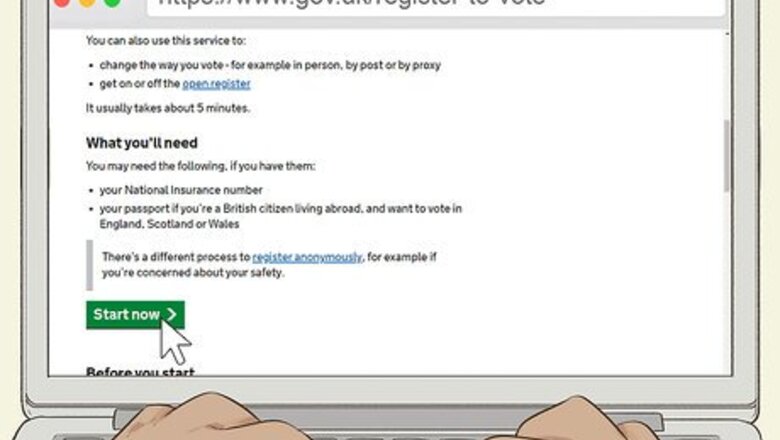
views
X
Research source
Adding Your Name to the Public Register
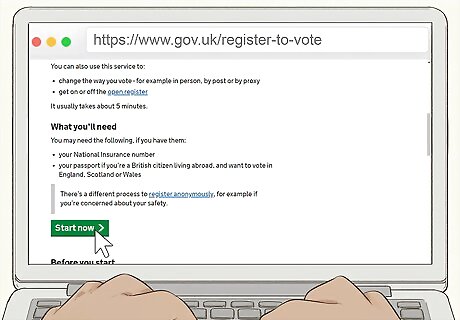
Visit the British government website to register to vote. The quickest and easiest way to add your name to the public register is to go to https://www.gov.uk/register-to-vote. Scroll down and click the green "Start now" button to complete your registration. You will need to provide your name, address, and date of birth as well as your National Insurance number. If you're a British citizen living in another country and want to register to vote in England, Scotland, or Wales, you'll also need your passport.
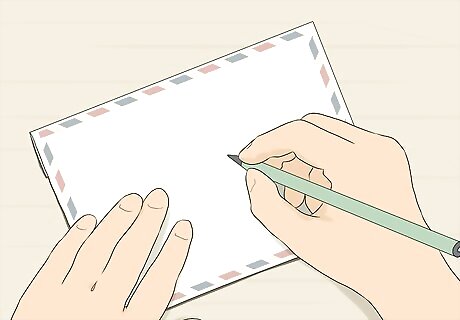
Register to vote by post if you don't have internet access. If you aren't able to register online, you can fill out a paper form and return it to your local electoral registration office. You can either download the form online and print it out or stop by your local electoral registration office and get one. If you live in England, Scotland, or Wales, you can find your local electoral registration office by visiting https://www.gov.uk/get-on-electoral-register and entering your postcode. The paper forms for registering by post are available at https://www.gov.uk/government/collections/register-to-vote-paper-forms. If you live in Northern Ireland, use the form available at http://www.eoni.org.uk/Register-To-Vote/Register-to-vote-change-address-change-name.
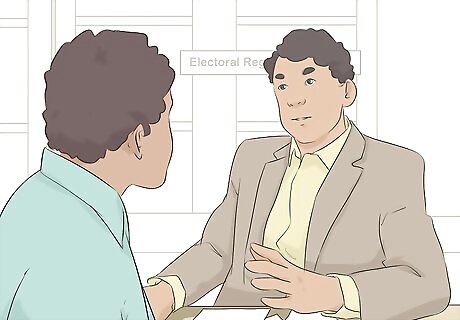
Contact your local electoral registration office if you need help. If you're having trouble filling out the forms or registering online, staff at your local electoral registration office can assist you. If you aren't sure if you registered to vote in the past, they can also look you up and see if you're on the electoral roll already. If you have a learning disability, there is an easy-read guide to registering to vote available at https://www.gov.uk/government/publications/registering-to-vote-easy-read-guide.Tip: The UK has an open registration list that is available to anyone who requests a copy. When you register, you can opt-in or opt-out of the open list. If you change your mind, you can switch your choice at any time through your local electoral registration office.
Registering to Vote Anonymously
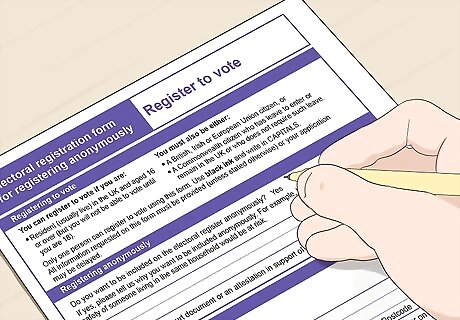
Fill out the anonymous registration form. The UK allows you to register to vote anonymously if you believe your safety would be in danger if your name were listed on the public electoral roll. To do so, you must fill out a paper form and take it to your local electoral registration office. If you live in England or Wales, you can use the form at https://www.yourvotematters.co.uk/__data/assets/pdf_file/0015/242241/Register-to-vote-anonymously-England-and-Wales.pdf. In Scotland, use the form at https://www.yourvotematters.co.uk/__data/assets/pdf_file/0016/242242/Register-to-vote-anonymously-Scotland.pdf. If you live in Northern Ireland, you can download the anonymous registration form at http://www.eoni.org.uk/Register-To-Vote/Anonymous-Registration.Tip: You can also get a form at your local electoral registration office. If you don't know where your local electoral registration office is located, go to https://www.gov.uk/get-on-electoral-register and enter your postcode.
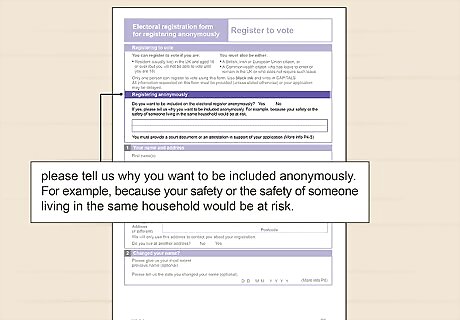
Describe the reason you need to register anonymously. Explain why your safety, or the safety of someone who lives with you, would be threatened if your name and address were listed on the electoral roll. Include as much factual detail as possible. If you're concerned about the safety of someone who lives with you, explain how the individual or group that is a threat to their safety would know they lived there based on seeing your name and address. For example, if you're concerned about the safety of your child, it would be assumed that your child lives with you.
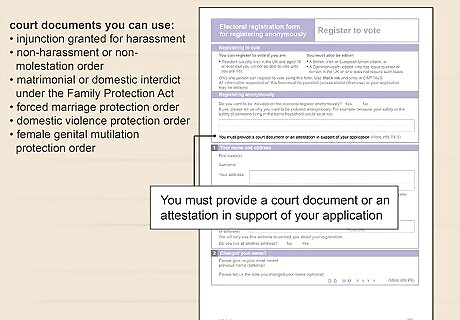
Provide a court order that supports your need to register anonymously. If you or someone who lives with you has a protective order issued by a court, you can use this as proof that you would be endangered if your name and address were included on the electoral roll. There are several different court documents you can use, including: An injunction granted for harassment A non-harassment or non-molestation order A matrimonial or domestic interdict under the Family Protection Act (Scotland) A forced marriage protection order A domestic violence protection order A female genital mutilation protection order
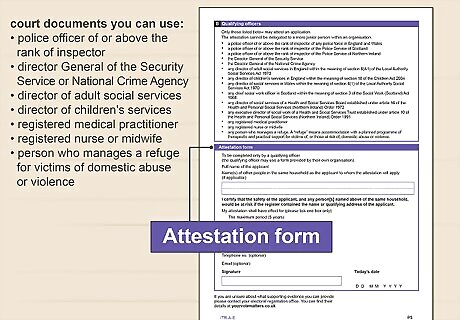
Get an authorized person to sign your application if you don't have a court order. Even if you haven't been issued a court order that proves that your safety, or the safety of someone who lives with you, would be threatened, you may still be able to register to vote anonymously. However, your application must be signed by someone who is authorized to confirm that your safety, or the safety of someone who lives with you, would be threatened. Only the following people can sign this attestation on your behalf: A police officer of or above the rank of inspector The Director General of the Security Service or National Crime Agency A director of adult social services A director of children's services A registered medical practitioner A registered nurse or midwife A person who manages a refuge for victims of domestic abuse or violence
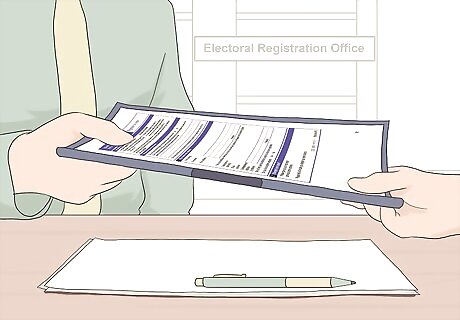
Submit your form and evidence to your local electoral registration office. Once you've completed your application form, take it along with your evidence to your local electoral registration office. A staff member there may ask you questions about your application and your reasons for wanting to register to vote anonymously. Make a copy of your application and any evidence you submit for your records before you submit them to the local electoral registration office. You'll find out if your application is approved immediately. Once approved, you'll be registered to vote anonymously. You will be allowed to vote, but your name and address won't be listed on the open register. If any additional information or documentation is required to process your application, the staff member who reviews your application will let you know.











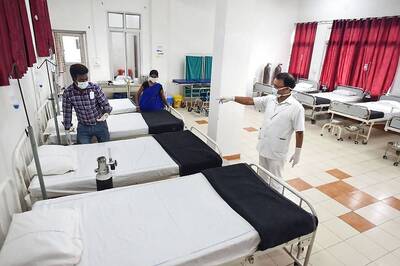





Comments
0 comment